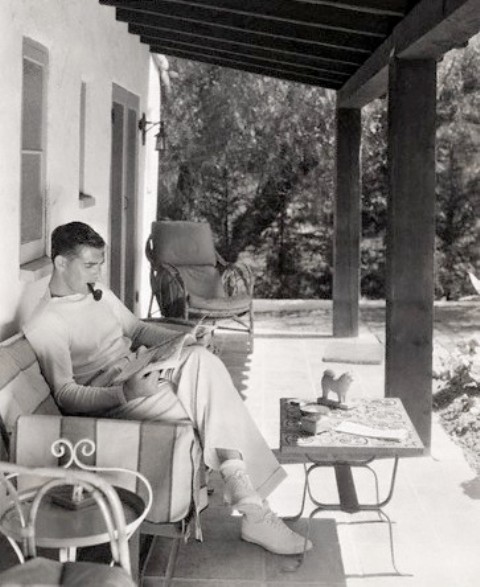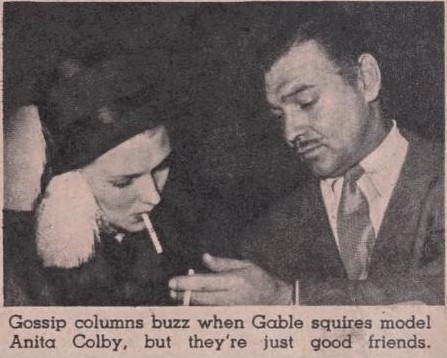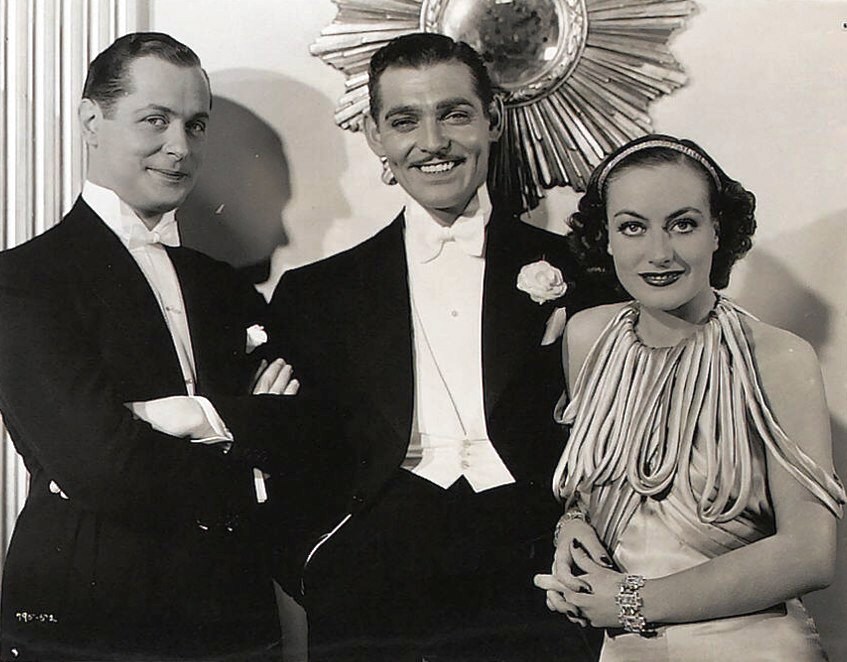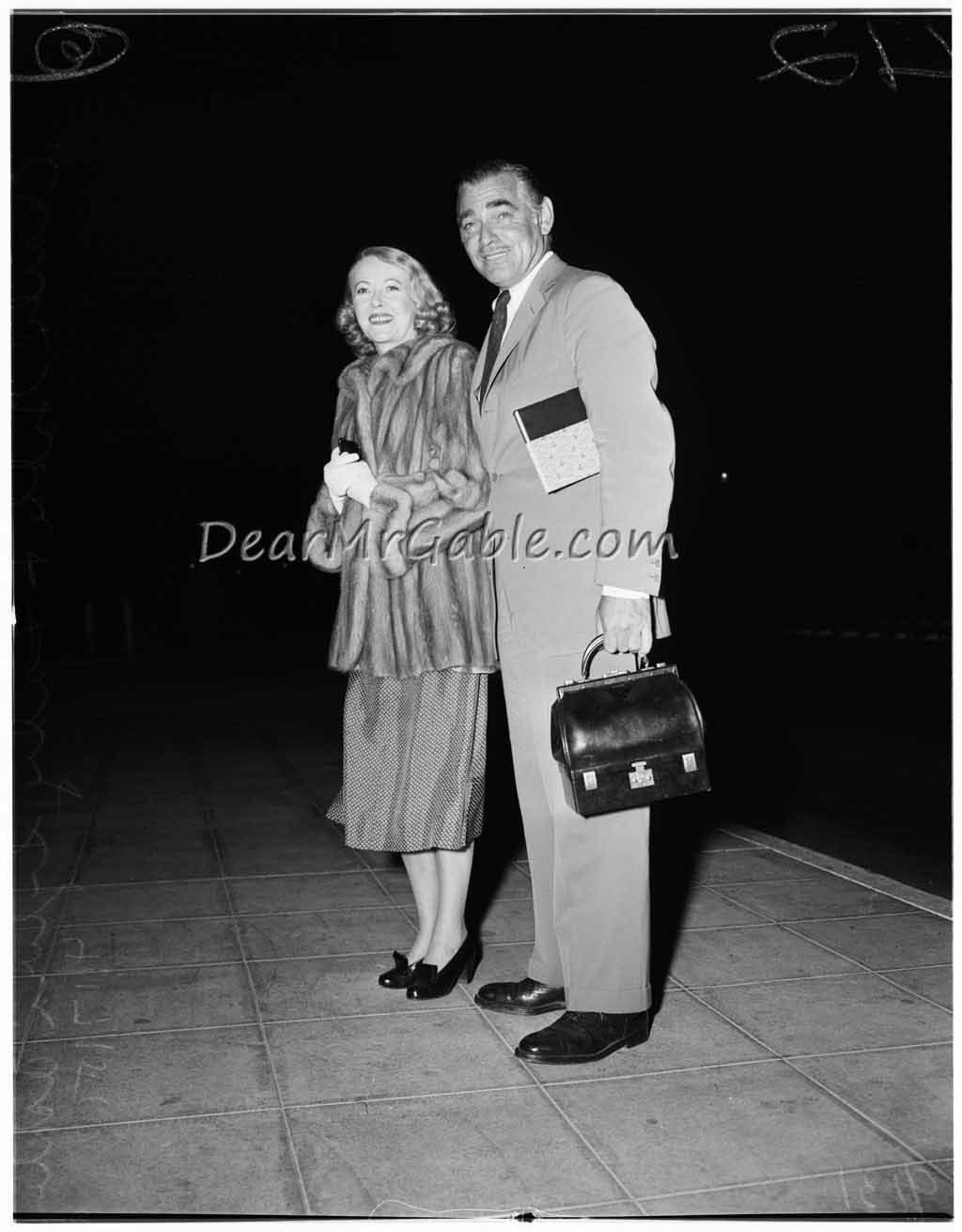{New Article} 1932: Around the Clock with Clark Gable
In case you have ever sat and thought to yourself, “I wonder how Clark Gable spent his Saturdays eighty-one years ago?” I have the answer! In this probably-mostly-made-up article from 1932!
At this point, Clark’s stardom was exploding and the MGM powers-that-be figured out that they couldn’t paint him as a nightclubbin’ man about town, no matter how hard they tried. So they went with the opposite approach: Here is your hearthrob Clark Gable, a man who woos Joan Crawford and wears tuxedos all week at the glamorous movie studio, but on the weekend schelps around town like an every day Joe!
Here is is Saturday schedule:
It is somewhere between nine and ten am of a Saturday morning—a non-working day in the life of Clark Gable. He is in his bedroom in his apartment at the Colonial House in Hollywood. He doesn’t need an alarm clock. He wakes up when he has planned to wake up the night before. And he wakes instantly, alive, alert, sleep gone. No “one more naps” for him. No stretchings. No deferrings. He rises swiftly. He takes a cold shower. He sings under the icy spray. Songs he doesn’t know the names of, nor the words. He just “makes a noise.” Any Saturday morning between nine and ten when he is not working you may have this mental and vocal picture of Clark Gable before you and it will be a true one.
10:00—“Breakfast”—the word breakfast is in quotes because Clark never eats any breakfast. Never. Not for dietary reasons. Just because he doesn’t like the thing. He always has one cup of black coffee, no more, no less. He takes it sitting on the edge of hid bed, talking to his wife, or to his small step-son and best pal.
10:30—Still in dressing gown and pajamas Clark takes his favorite bedroom chair and has a look at the two morning papers, the Times and the Examiner. He does NOT read the stock quotations. Because he has no stocks. He does not read the local news, not even the Hollywood section. He reads the telegraphed news first and reads it thoroughly. Things that do not concern him personally. A rare trait in an actor.
He finishes the papers and reads his mail. NOT his fan mail. His secretary attends to that, saving for him letters of importance, and these he takes care of at the studio. Personal letters from old friends he reads—and answers. Clark never forgets and never neglects the friends of other and less fortunate days. He is never interrupted in the reading of his mail or at any other time by the telephone, because he never answers the telephone. If he is forced to talk business for some reason he confines himself to brief yeses and nos. He dislikes intrusive instrument.
11-11:30—He dresses in knickers, sweater and scarf-all old and well worn. And he takes his two dogs for their daily walk. A chow christened Wu and a Scotty named Laddie. Sometimes they walk round and round the block at a brisk clip. Sometimes they strike into the Hollywoodland hills. Almost always Clark’s young step-son accompanies them. The boy goes to a military school but always comes home on weekends at Clark’s special request.
12:30—Home again. And then, for fifteen minutes to half an hour or as long as he has before luncheon is served he reads. He doesn’t read to improve his mind or to astonish with learned quotations. He reads a lover of books always reads—for the sheer pleasure of it. He never reads modern novels, seldom reads fiction. Mostly he reads poetry. Not the pretty Valentine poetry of lovers knots and moonlight and roses, but the more virile poets: Masefield, Robert Frost, Robinson Jeffers. And as he reads he marks the passages that especially appeal to him so that he may go back to them again when leisure comes his way. He reads biographies and histories and philosophies. He reads whatever he feels like reading at the moment and never what anyone tells him to.
1-1:30—“Luncheon”—and again I use the quotes because, when he is not working, Clark never eats lunch. He sits at table with his family in order to be sociable and for no other reason. Occasionally he will have another cup of coffee or some fruit and that is all. Very seldom is the family talk of the studio or of anything connected with Hollywood. They talk of the boy’s school and of the daughter’s activities. They talk about polo and the books they are reading and flying and Bridge. They talk about guns and hunting and dogs and horses. A listener-in—as you are now—and you—and you—would never believe that they are listening to the table talk of an actor.
2:00—This hour of the clock is always reserved for one of four things. Clark plays polo. He plays tennis or golf. Or he takes the boy and the dogs, piles into the roadster, boy and dogs in the rumble, and they are off. They ride. They speed. They make the wind a laggard thing vainly trying to keep up with them. They never talk. The glory of wind and speed is sufficient for them. He is utterly content when he is at the wheel.
5:00-5:30—Clark is home again. Sometimes with Mrs. Gable and sometimes alone he rambles up and down Hollywood Boulevard, poking into bookshops, turning the pages of volumes that interest him, buying one here and there, at random, to add to his library at home. He likes to watch the faces of the people they pass. He tries to avoid being recognized. When he is, the hour is spoiled for him.
6:00-6:30—He is home again, and this time, before dinner, he gives to reading. When he is at home he smokes a pipe. He does not dress for dinner other than to make the concession of removing the old, worn sweater and adding a coat.
7:00—Dinner hour. It is always a strictly family dinner. Rarely if ever are there guest. And always Mrs. Gable plans to have Clark’s favorite dishes. Soup first. A thick cream soup, cream of tomato or cream of mushroom. A steak, also thick, onions. A green salad. One or two vegetables. Pie and coffee for dessert. A large substantial dinner for a man who is, by this time, ravenously hungry.
8:30—There are two guests—for bridge. They play contract for a tenth of a cent a point. Clark loves bridge. The guests who play with them are not professional people. They have one or two high-balls as the evening progresses. They play until midnight of shortly thereafter. That is as late as Clark can manage to stay happily awake. They have sandwiches and coffee, and so to bed.
Midnight—Clark is in bed at this hour or soon thereafter. When he is working he is always in bed at nine. He reads before he switches off the light. He may read one paragraph or half a book through, but he always reads something for a short space of time. He closes the book, the lights are out and the clock has ticked off the waking hours of a day at home with Clark Gable.
A few things stuck out at me about this timetable:
Maybe at this point in his career and at this point in life, when he lived in an apartment, Clark was a late sleeper. But when he was on the ranch, he was always an early riser.
I sincerely doubt that Clark never ate breakfast or lunch. He was a man who liked to eat, at any age! I can’t imagine him not eating until dinner, no way. The description of the pot roast seems to be just like this article in which Ria details Clark’s favorite foods–and it’s worth mentioning that in that article Ria also describes Clark’s hearty breakfasts and lunches!
I also tend to think that the press exaggerated Clark’s relationships with his stepchildren. It seems to be me that he was kind to them, but I don’t think he was an overly doting stepfather at this point.
The reading and the bookstore are probably true; he was always a big reader. There aren’t many bookshops on Hollywood Boulevard for Clark to wander in and out of nowadays, that’s for sure!
I’m sure there are some truths here in his little routine, but I am doubtful that Clark let a reporter follow him around on a Saturday!
You can read the article in its entirety in the Article Archive.



